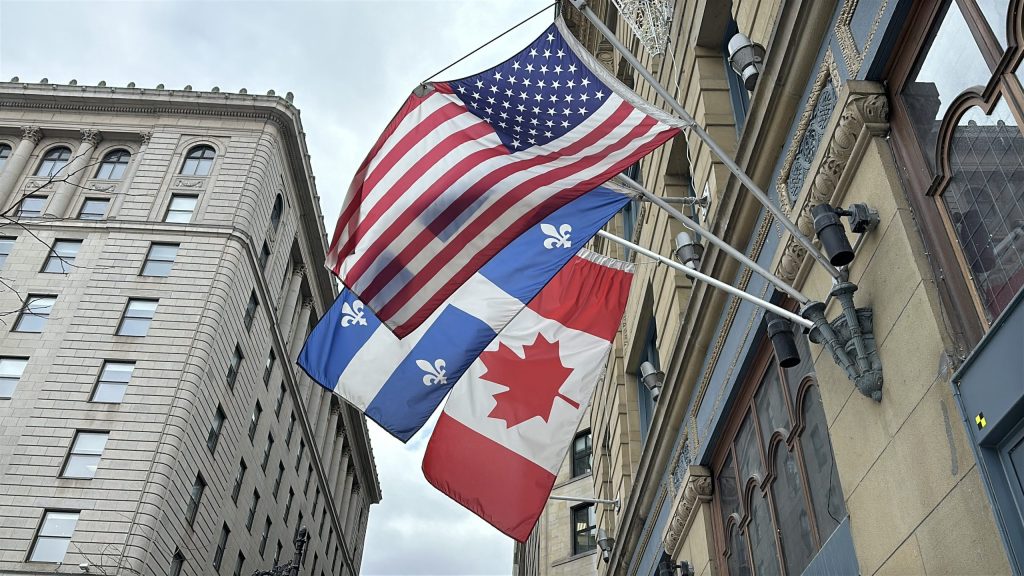Montreal filmmaker Canada’s choice for nomination at the Academy Awards for her documentary Rojek

Posted August 25, 2023 9:52 am.
Last Updated August 29, 2023 11:47 pm.
MONTREAL – The documentary “Rojek”, by 30-year-old Montreal filmmaker of Kurdish origin Zaynê Akyol, will represent Canada at the Academy Awards for Best International Film.
Telefilm Canada made the announcement on Thursday on behalf of the pan-Canadian selection committee, which made its choice from the 28 films submitted for this year’s selection.
“I’m putting myself in dangerous situations, push all the boundaries, all the access so, it felt good to be chosen by Canada,” explained Zaynê Akyol, director of Rojek.
“I made a first film about the Kurdish women fighters who are fighting ISIS at the very beginning of the war in 2014, and while I was filming this first documentary, when I came back, most of the women that I filmed died while fighting ISIS. So, I had this idea to face those people who were responsible directly or indirectly of the death of my friends and all of the people in the region. So that’s how the idea of Rojek came to me.”
After accompanying Kurdish women fighters in her previous film “Gulistan, Land of Roses”, Akyol goes on to meet incarcerated members of ISIS and their wives held in prison camps.
“Thousands of people died while fighting against ISIS…so it was a very hard moment for me. I kept watching the news and being obsessed with what was happening in the region. So that’s why I decided to make a film about the Islamic State. So, the exact opposite of those women who are feminist,” said Akyol.
Producer Sylvain Corbeil praised the committee’s “courage” in choosing “a genre that is not always visible”, and highlighted the filmmaker’s “nuanced approach” to an extremely delicate subject.
“It’s an extremely important subject. It’s also the fact that it’s a film with a nuanced approach. These days, it’s extremely important to put forward this kind of content,” said Corbeil on Thursday, during a conference call to discuss the announcement of the film’s choice to represent Canada.
“With social media, we often have shortcuts that make people less and less able to receive complex thoughts, points of view that are fleshed out, nuanced. Rojek is exactly that, so I congratulate the committee for taking that risk.”
“Rojek”, released in theatres on January 20, is narrated in a mixture of Arabic, English, French and Kurdish.
It has been screened at festivals around the world, and won the DGC – Canadian Feature Documentary Special Jury Prize at the Hot Docs 2022 Canadian International Film Festival.
So far, seven countries have submitted entries for the Best International Film. Last year, 93 countries submitted films in this category.
The shortlist of 15 films selected for the next stage will be announced on December 21, and the films selected for the Oscars on January 23, 2024. The prestigious ceremony will take place on March 10.
Producers Corbeil and Audrey-Ann Dupuis-Pierre are hoping to revive the theatrical career of feature documentary “Rojek”, and to program it at American festivals, where it has not yet been screened.
“I think we’ll want to use this news to get the film back into theaters. And to give it greater visibility. It’s also a way of perhaps re-launching a political debate, because there are still a lot of Canadians in camps in Syria, in a kind of war zone,” said Corbeil.
The filmmaker said she “didn’t expect this honor at all”, hailing the choice of “such a demanding documentary to watch, a confronting documentary, a documentary that talks about the Islamic State, so jihadists who are completely indoctrinated”.
“Of course, the challenge is to have access, the challenge is to be safe, the security, the challenge is to talk to all the governments in charge, to find a crew there because we also had to find locals there. To have permission, so everything from A to Z was a challenge to make this film actually. It’s really a sacrifice physically and psychologically,” said Akyol.
“And then me, as a woman, who positions myself opposite them to discuss and try to understand this indoctrination. That’s a daring approach. So I’m extremely proud. I also love documentaries. I’ve always made them. It gives a lot of documentary filmmakers something to believe in.”
For Akyol, who’s of Kurdish origin herself, it’s an opportunity to shed light on the struggles experienced by the Kurdish community.
“We are being killed, bombed, assimilated for over a hundred years so, I felt that the situation can change and through art I can make a difference.”
A Canadian documentary was also selected last year, “Printemps éternel”, by director, writer and producer Jason Loftus. However, the animated documentary about the 2002 hacking of a Chinese state TV channel by Falun Gong members didn’t make it to the Oscar ceremony.
Over the years, eight Canadian films have made it all the way to a nomination in the category that used to be called Best Foreign Language Film: Kim Nguyen’s “Rebelle” (2013), Philippe Falardeau’s “Monsieur Lazhar” (2012), “In Darkness” by Agnieszka Holland (a minority co-production with Poland and Germany, also in 2012), “Incendies” by Denis Villeneuve (2011), “Water” by Deepa Mehta (2007) and three films by Denys Arcand, namely “Le Déclin de l’empire américain” (1987), “Jésus de Montréal” (1990) and “Les Invasions barbares” (2004).
“Les Invasions barbares” is, to date, the only Canadian film to win the award in this category.
-With files from Swidda Rassy, CityNews
This report by The Canadian Press was first published in French on August 24, 2023.








